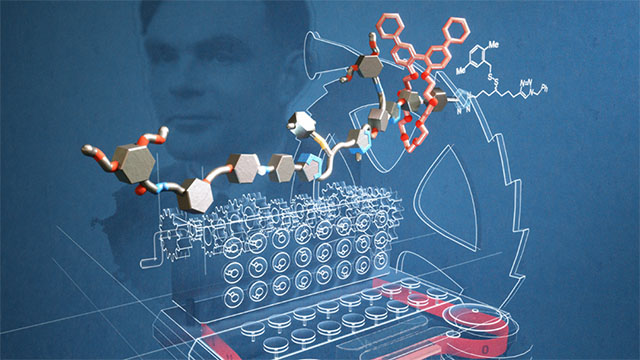Talk: Manchester Lit & Phil – Creating the tiniest machines: harnessing molecular-level motion
- Mon 06 Nov 2023
- 6:30 pm
- £10.00

What possibilities do molecular-level machines hold? Are we at the dawn of a new industrial revolution, where molecular machinery will become an integral part of our lives? The incredible work of scientists like Professor David Leigh and his team would certainly seem to suggest that.
The best way to appreciate the technological potential of controlled molecular-level motion is to recognise that nanomotors and molecular-level machines lie at the heart of every significant biological process. Over billions of years of evolution, nature has not repeatedly chosen this solution for performing complex tasks without good reason.
But in stark contrast to biology, none of mankind’s fantastic myriad of present-day technologies exploit controlled molecular-level motion in any way at all. Every catalyst, every material, every plastic, every pharmaceutical, and every chemical reagent: all function through their static or equilibrium dynamic properties.
When we learn how to build artificial structures that can control and exploit molecular level motion and interface their effects directly with other molecular-level substructures and the outside world, it will potentially impact on every aspect of functional molecule and materials design. And this will surely bring an improved understanding of physics and biology.
The possibilities these new ‘tiny machine’ technologies are creating are truly incredible.
About Professor David Leigh
Professor David Leigh (www.catenane.net) is one of the pioneers of the field of artificial molecular machinery. Landmark examples from his laboratory include the first synthetic molecular machines able to perform macroscopic work and a programmable ‘molecular assembler’, described in the journal Nature in 2017 as ‘science fiction becomes fact’.
In recent years his research group have also tied molecules into knots and invented 2D molecular weaving. This research has resulted in two Guinness World Records: for the ‘Tightest Knot’ (2019) and the ‘Finest Woven Fabric’ (2022).
Leigh has received major national and international scientific awards. These include the Feynman Prize for Nanotechnology (2007), the Royal Society Bakerian Medal (2013), the Royal Society of Edinburgh Royal Medal (2021), and the International Society for Nanoscale Science, Computation and Engineering Nanoscience Prize (2019). He was elected a Fellow of the Royal Society (FRS) in 2009. He is a Royal Society Research Professor and the Sir Samuel Hall Chair of Chemistry at the University of Manchester, UK.


